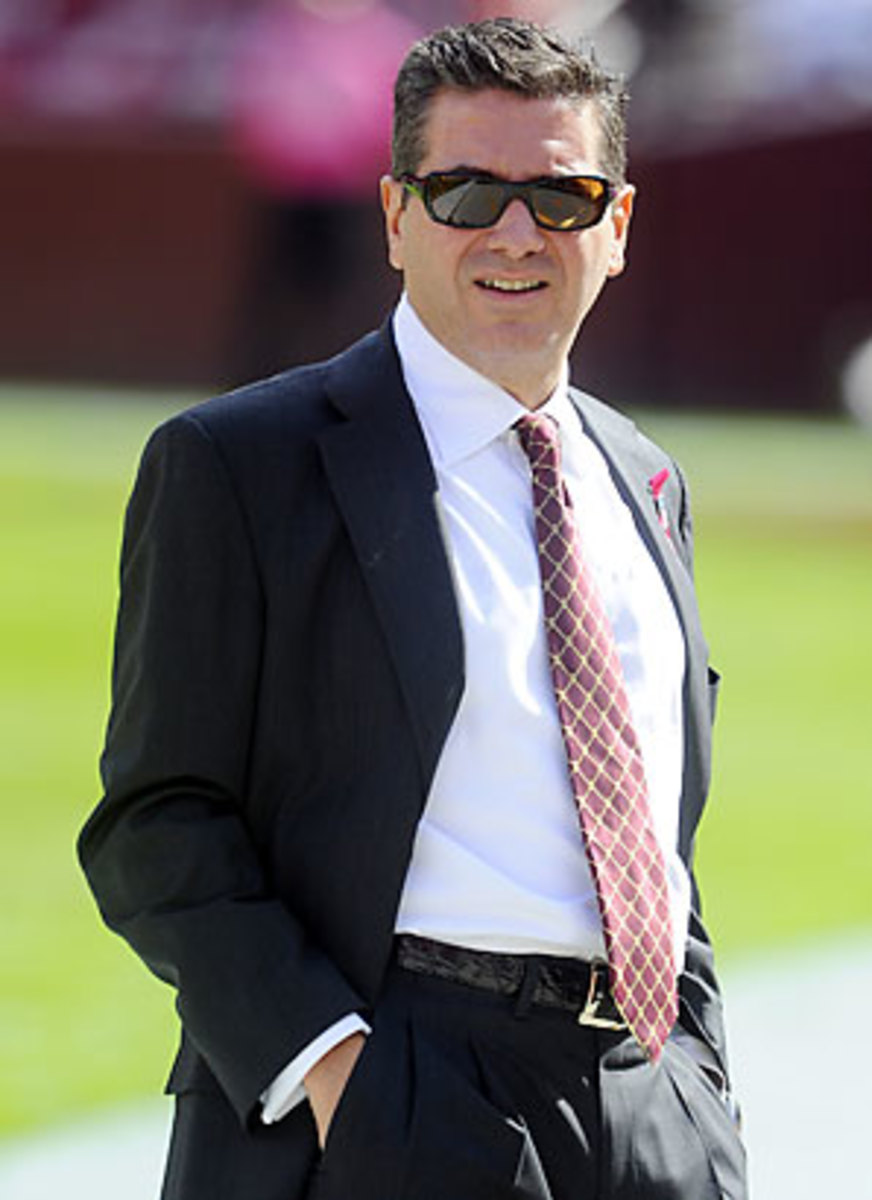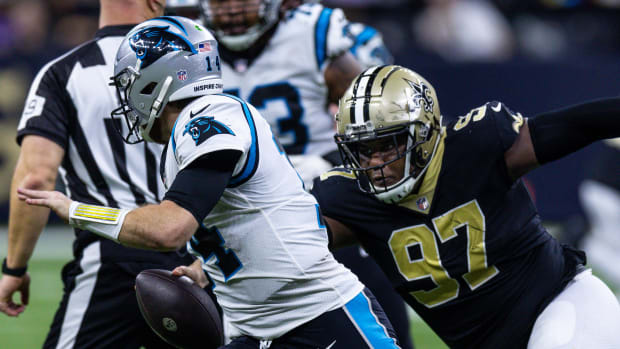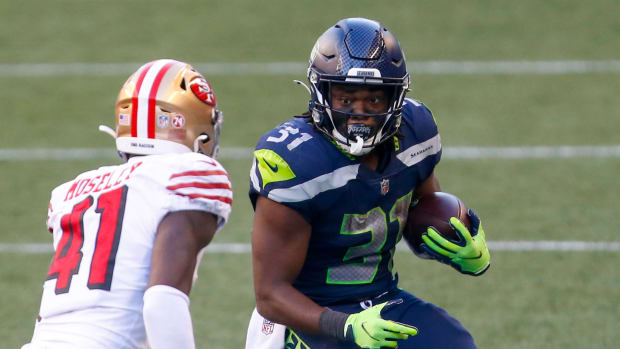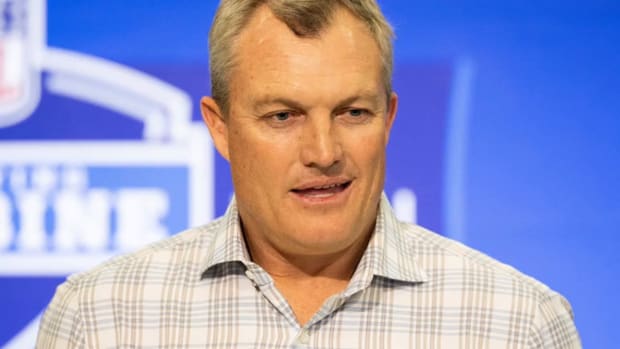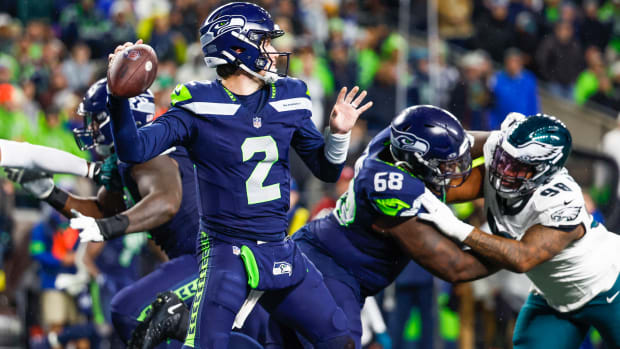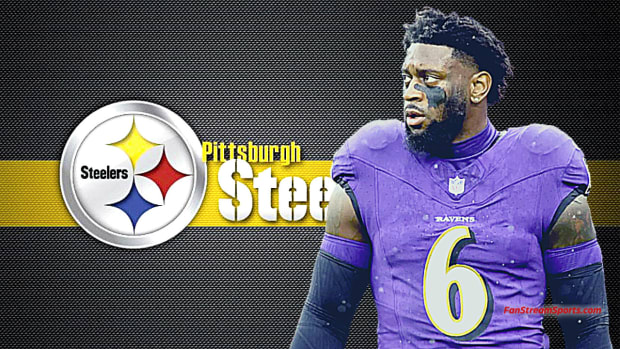Proving that NFL teams agreed to a secret salary cap will not be easy
Did the NFL and its teams secretly impose a salary cap of $123 million in the uncapped 2010 NFL season? Were teams threatened by the league with "serious consequences" if they exceeded the secret cap? The NFLPA asserts yes to both questions, and earlier today filed Reggie White, et al. v. NFL, a collusion lawsuit against the league in the U.S. District Court for the District of Minnesota. The players contend they lost $1 billion because of the secret salary cap; as stipulated by collectively-bargained language, such damages, if proved, would be automatically trebled to $3 billion.
Collusion refers to two or more teams, or the league and at least one team, acting in concert to deprive players of collectively-bargained rights. Under Article XXIII of the expired CBA, the NFL and NFLPA affirmed that teams would not conspire, either explicitly or tacitly, to keep salaries down. The two sides also agreed that if they failed to reach an agreement on a new CBA before the 2010 season, the 2010 season would be played without a cap, though with more restrictions on free agency.
The logic behind the provision was obvious and it mostly favored players: owners would presumably be more willing to make concessions to reach a new CBA before the 2010 season if they feared each owner, left to himself or herself, spending as much as desired to sign players, thereby escalating the market rate for players across the league.
The fact that owners declined to compromise on a new CBA before the 2010 season suggests they were not afraid; the fact that 30 of 32 teams did not spike salaries and 28 did not exceed $123 million in payroll suggests they had little reason to be afraid. Whether the absence of fear results from a secret agreement among teams lies at the heart of this lawsuit.
The NFLPA largely bases its claim on the league punishment of the Redskins and Cowboys for having large portions of players' contracts count toward the 2010 season, thereby benefiting them in future seasons, which would be capped. Although any team would seemingly have been able to take advantage of the uncapped season, the league regarded the Redskins and Cowboys as exploiting the situation. The Redskins have lost $36 million in cap space and the Cowboys $10 million because of their alleged transgressions.
Viewed another way, up to $46 million won't be paid to NFL players because of these penalties, thus showing harm to players. The NFLPA also asserts that only four teams exceeded the secret $123 million salary cap in 2010: the Redskins (by $103 million); Cowboys ($53 million); Raiders ($41 million); and Saints ($36 million). If teams lacked fear of being punished for exceeding $123 million in payroll, it stands to reason that more teams, particularly those with substantial sources of unshared revenue (such as from stadium naming rights, local sponsorships and personal seat licenses), would have spent more than $123 million.
From the viewpoint of the NFLPA, instead of viewing the Redskins and Cowboys as wrongdoers, they merely followed the letter of the law, whereas most other franchises wrongly colluded. Similarly, while Giants owner John Mara, chair of the league's executive committee, opined the Redskins and Cowboys were justifiably punished for taking advantage of a "loophole . . . in violation of the spirit of the cap," the NFLPA contends the "spirit of the cap" is a kinder and gentler way of describing illegal collusion.
The NFLPA's lawsuit does not arrive in a vacuum. More than any league, the NFL champions itself and its teams as acting cohesively and jointly. In American Needle v. NFL, the league went so far to call its competing teams one single entity for purposes of entering into licensing agreements and other business endeavors. This level of cooperation strengthens the NFLPA's core argument: a coordinated strategy among NFL teams to deprive players of potential earnings comports with other evidence of cooperation by so-called "competing" teams.
While the NFLPA makes a fairly compelling case on the surface, the NFL can offer persuasive defenses.
First, the NFLPA arguably waived away these claims by virtue of the CBA ratified on Aug. 4, 2011. For instance, Article 3(a) of the new CBA states that the NFLPA "releases and covenants not to sue" the NFL or any NFL club for "collusion with respect to any League Year before 2011 ..." The language is unambiguous. On the other hand, the NFLPA maintains that it was denied knowledge of the league's allegedly collusive actions. The NFL, like the NFLPA, had a duty to bargain in good faith and negotiate in fair dealing. A "secret" side agreement to have a de facto salary cap would likely constitute breaches of those duties.
Second, the mere absence of most teams "taking advantage" of an uncapped season does not prove collusion. Teams could have decided, on their own, to refrain from spending an unusually large amount of their owners' money in 2010. By definition, decisions by individual teams do not constitute collusion.
For instance, if Patriots head coach Bill Belichick and owner Robert Kraft decided -- "colluded" -- that the Patriots would not exploit the absence of a cap, they would have not committed collusion for purposes of the law. Collusion would only have occurred if Belichick or Kraft had agreed with league officials or officials from other teams to do so. Given the intense level of competition and distrust among rival teams -- consider how they distort injury reports to mislead opposing teams -- it seems plausible that most teams team did not act in concert in 2010 but merely decided, on their own, to spend as they did.
Third, collusion necessitates actual evidence, rather than merely allegation or inference. E-mails, memos, voicemails, videos or similar recordings of communications would help to corroborate the NFLPA's complaint. So too would incriminating statements of a colluder or eyewitness -- such as a former executive from a purportedly colluding team -- who is willing to testify under oath. Mara's reference to a "spirit of the cap" advances the NFLPA's argument, but only if it refers to an actual agreement among teams.
The NFLPA's complaint also quotes Mara as saying a secret salary cap "came up several times in [ownership-level] meetings," but it's not whether such conversations were decisive, taken out-of-context, or in any way influential or binding. In that same vein, if the NFLPA's case is built on hearsay or innuendo, the NFL would be poised to defeat it.
Also in regards to evidence, expect the NFL to wonder why it has taken the NFLPA two years to uncover supposed evidence of a widespread conspiracy among potentially hundreds of persons, many of whom are in regular contact with media.
Fourth, collusion normally refers to agreements among decision-makers, as opposed to lower level staff. An agreement between Ravens GM Ozzie Newsome and Browns President Mike Holmgren for their teams to not take advantage of an uncapped season would be collusion. An agreement between two area scouts from the Ravens and Browns would probably not constitute collusion, since neither scout would be in a position to significantly impact how much a team spends.
The lawsuit is expected to be heard by Judge David Doty, who was agreed upon in previous NFL-NFLPA agreements to hear disputes and who is regarded as relatively favorable to players. In prior years, such a dispute would have been heard first by a special master for labor disputes. The special master for such disputes had been University of Pennsylvania Law Professor Stephen Burbank (who still arbitrates disputes brought by teams against the league), but according to the NFLPA's complaint, there is no longer a special master for labor disputes.
In addition to seeking the lawsuit's dismissal, the league could also try to have the case moved to a different jurisdiction. While prior CBAs empowered judicial review by Judge Doty, the current CBA does not expressly do so. Then again, the NFLPA contends the lawsuit relates to facts under a prior CBA and thus should be heard by Judge Doty.
Right on the heels of Jonathan Vilma's unprecedented lawsuit against commissioner Roger Goodell, White v. NFL could break even more ground in the growing canon of NFL law.
































